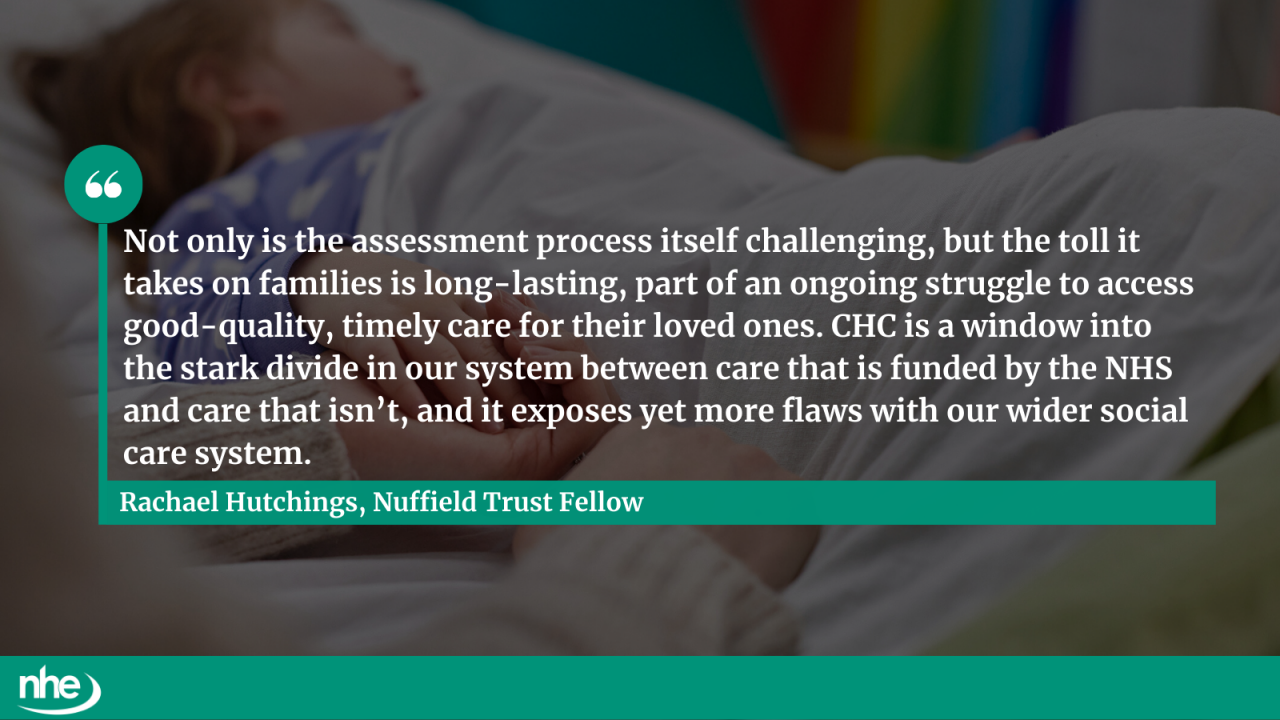New research from the Nuffield Trust, part-funded by the Nuffield Foundation, reveals that NHS Continuing Healthcare is failing to reach some of England’s most unwell patients, while reinforcing deep regional and socioeconomic inequalities.
CHC is a package of free health and social care provided outside hospital, funded by the NHS for people with significant ongoing needs. However, the report finds that despite a 17% increase in CHC spending between 2017 and 2023, the number of people found eligible has fallen by 9%, and access remains inconsistent and unfair across the country.
CHC can be a vital lifeline for those with serious health conditions, disabilities, or end-of-life care needs. Yet, the current “all or nothing” eligibility model is described as dysfunctional, leaving many without support and facing catastrophic costs. In some cases, local authorities are left to cover care bills when individuals are deemed ineligible.
The report highlights a lack of public and professional awareness, a complex application process, and subjective decision-making, despite the existence of a National Framework intended to ensure consistency.
Key findings include:
- A five-fold difference in CHC eligibility rates between Integrated Care Boards (ICBs).
- Spending per eligible person is £22,432 lower in the North West compared to the England average.
- In 2022/23, the most deprived areas saw £47,300 spent per person, compared to £95,085 in the least deprived areas.
These disparities point to a postcode lottery, with financial pressures and inconsistent relationships between NHS bodies and local authorities affecting referrals and assessments.
The Nuffield Trust has called for urgent action from NHS and Department of Health and Social Care leaders to improve fairness and consistency. Recommendations include better training, sharing best practice, and ensuring assessments align with national standards.
Rachael Hutchings, Nuffield Trust Fellow, said:
“For people grappling with the bewildering CHC process, the stakes couldn’t be higher. Being eligible can be the difference between having all of your health and social care funded or being faced with catastrophic care costs, often during times of crisis. But our research suggests that access to this vital funding is unfair and inconsistent.
“Not only is the assessment process itself challenging, but the toll it takes on families is long-lasting, part of an ongoing struggle to access good-quality, timely care for their loved ones. CHC is a window into the stark divide in our system between care that is funded by the NHS and care that isn’t, and it exposes yet more flaws with our wider social care system.”

The report also questions the future of CHC itself, suggesting it may perpetuate systemic unfairness. With the social care sector under severe strain, those rejected by CHC face even greater difficulty accessing support.
The authors urged policymakers to use the upcoming Casey Commission into adult social care as a pivotal opportunity to build a resilient, fair and integrated care system that works alongside the NHS.
Image credit: iStock



















